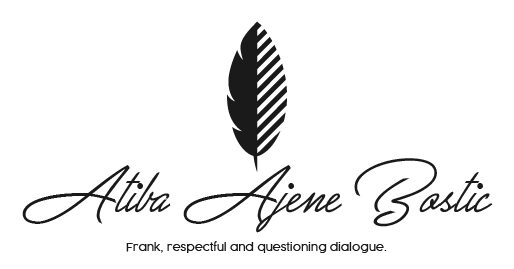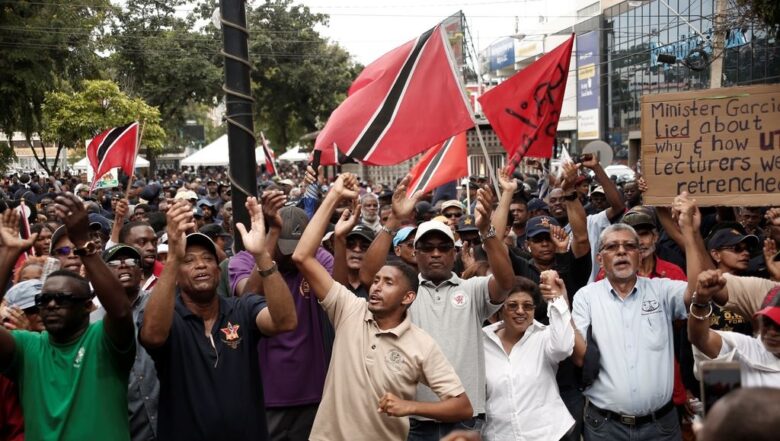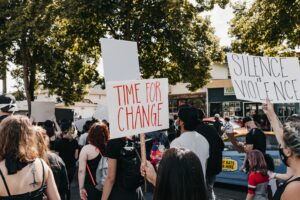All objective thinkers, in my view, will agree that both Capitalism and Communism as economic models have in practice failed to deliver to humanity in its lifelong struggle for life, liberty and the pursuit of happiness.
These systems have emerged from the consistent struggle between ruling elites and the working people; the former, using power and might to dominate, exploit and oppress, the latter seeking to defend itself from the oppression, exploitation and manipulation by the few.
Since the late eighteenth century, the industrial revolution and the growth of capitalism led to the emergence of the working class, the working people and Trade Unions as organisational instruments to defend themselves from the unfairness, exploitation and oppression of the ruling capitalist class. The struggle is a continuing one and is intensifying in the new millennium as we increase our understanding that capitalism is not Democracy.
The imperative of the capitalist has always been to maximise profits regardless of the negative consequences to the environment individual or society—the latest mantra is “Greed is good”
The mission of the Trade Unions has been to protect the worker, to oppose the imbalances and to ensure that the interests of the worker are taken into consideration, in particular, the provision of a living wage. They seek to promote unity, democracy and cooperation among the working people.
The imperative of the communist is to establish a dictatorship of the proletariat as a first stage in the movement to socialism (democracy) and finally Communism. This theory has failed in practice as new elites were formed to support a continuing dictatorship. This led to authoritarian rule and to serious breaches and violation of the human rights of the working people, notwithstanding the safety net in the economy that the state provided for the poor.
Martin Luther King was a brilliant pastor, a member of the black prophetic Christian community, a revolutionary democrat and leader of the non-violent civil rights movement of African Americans in the United States of America in the 1960s. In his speech at the annual convention of the Southern Christian Leadership Center in Atlanta on August 16th, 1967, “where do we go from here.” Chaos or Community (Harper and Row) he said: “Truth is found neither in traditional capitalism nor in classical communism. Each represents a partial truth.
“Capitalism fails to see the truth in collectivism. Communism fails to see the truth in individualism. Capitalism fails to realise that life is social; communism fails to realise that life is personal.”
He stated further: “The good and just society is neither the thesis of Capitalism nor the antithesis of Communism, but a socially conscious democracy which reconciles the Truths of individualism and collectivism.”
CLR James, a brilliant scholar, intellectual and a revolutionary son of the soil, has always advocated a conception of Democracy that deepens the model of sharing and cooperation. He believed that the movement for genuine participatory Democracy and the movement for Socialism are not mutually exclusive but interconnected. The Democracy he envisaged is one from the bottom up, not top-down. It must involve the direct participation of the people in decision-making and approval of policies at all stages of the process. It requires accountability to, and consultation with, the people, but most importantly, giving them a voice in matters that affect them.
Some of the developing and underdeveloped countries of the world, the so-called “Third World”, and in particular, the Caribbean countries, because of our unfolding reality, became parliamentary democracies. In these economies, the state plays an important part in the capitalist market economy, social welfare programs were established by the State, and the roles of business and democratic Trade Unions were recognised. This represents an ideal framework for the development of a democracy.
In Trinidad and Tobago, the path of our governments has been to advance capitalism by adopting pro-corporate stances and implementing policies that support the capitalist to the disadvantage of the working class and working people that elected them to office to serve and protect their interests.
The Peoples National Movement (PNM) governments choose this path notwithstanding its position in the 1956 “Peoples Charter, which is a statement of fundamental principles, “that capital must be responsive to the legitimate democratic and nationalistic aspirations of the worker” (Race and Nationalism in Trinidad and Tobago (I.S.E.R. UWI) Selwyn Ryan, p123).
This position was reinforced by the political leader of the PNM, Dr Eric Williams, in a speech delivered at Couva in the 1961 general elections: “You take from those who have had too much for too long and distribute it among those who have had too little for too long” (Ryan p273).
Dr Williams also stated: “… this is a social revolution at work in Trinidad and Tobago that knows no colour, that knows no race that distinguishes only between the depressed and the disinterested and those who have always had too much” (Ryan, p276).
In the book “Sharks and Sardines” by Selwyn Ryan, Lou Ann Barclay (1992 I.S.E.R. UWI, St Augustine), the latter writer stated at p16 that after the February (Black Power) Revolution in Trinidad and Tobago, in 1970, the PNM government sought to correct the imbalances in the economy where a small clique differentiated by colour and race controlled most of the commercial and productive activities.
The PNM rewrote its “People’s Charter”, adopting a new approach in response to the changing reality, to the socio-economic development of the country.
Emphasis was now placed on the “People’s Sector”, which introduced the cooperative as the instrument of organising small-scale economic activities, including small-scale agriculture, and to create an infrastructural environment that was conducive to the development of the small business sector. This change in policy was revealed in September 1970, when the PNM published a new policy statement, “Perspectives for the new Society”, a fundamental revision of the 1956 “People’s Charter”.
In “Perspective”, known as the Chaguaramas Declaration of 1970, the PNM accepted the need for “revolutionary change” guided by rational objectives and means. If expressed, its commitment to implementing policies, while in government, the guaranteed “greater economic power for the historically dispossessed groups, a more equitable distribution of the social product, greater participation in decisions affecting the community, and constitutional reform ….”
Fifty-nine years have elapsed since we gained independence, and there is still a need for systemic and transformative institutional, economic, political and educational change in our social order.
The time has come for us to transform our economy, redress the imbalances that deepen inequality and implement innovative policies that lead to stability, growth and sustainability.
In addition to our efforts in the capitalist market economy, we must also focus on developing and growing the solidarity economy as an essential part of our economic model to advance our economy and promote the values, attitudes and approaches needed to ensure social and economic justice, equality and equity.
The solidarity economy is similar to the “People’s Sector” in its perspective. The International Labour Organization (ILO) has, since its inception in the early twentieth century, been committed to the solidarity economy. In its report in July 2017 on the “Social and Solidarity Economy and the Future of Work”, it stated that the social and solidarity economy is an umbrella concept designating social and solidarity economic enterprises and organisations as (SSEOs), in particular, cooperatives, mutual benefit societies, associations, foundations, nonprofit and social enterprises, which have the specific feature of producing goods and services and knowledge while pursuing both economic and social aims and fostering solidarity.
Society, particularly the trade union movement, must deepen its involvement in the struggle to transform the economy. They must call on the government to refocus its attention on developing the Cooperative, Credit union and Small Business sectors as viable and important engines of growth.
We must find creative and innovative ways to enlarge the involvement of these sectors in the economy. For example, to enable Credit Unions to become secure sources of venture capital for establishing cooperatives and small business ventures, especially those in the service sectors, such as care and social services.
The government and the trade union movement must take steps to refocus the Cipriani College of Labour and Cooperatives so that it plays an important role in the continuing efforts to re-educate the working people. We must train the working people to be self-organising efficient, skilled, disciplined, self-reliant, responsible, empathetic, courageous, frank, socially conscious, community-oriented critical thinkers.
We, in Trinidad and Tobago, must call on the government to intensify its efforts to improve the labour laws and the functioning of the National Tripartite Consultative Council to ensure that workers are well protected, to promote equity in industrial relations, and to create a positive and stable environment that facilitates economic growth and development.
We must now pay particular attention to the history of our revolutionary struggle for freedom, independence and democracy by our national liberation movement. We must now demand that our leadership do its duty to continue the democratic revolution and honour the promises made to the working class and the working people to create a genuine and progressive participatory democracy where every creed and race finds an equal place and where no one is left behind.
We must renew, refocus and regenerate our emerging democracy.
We must see through the nihilism, misinformation, dishonesty and manipulation of the ruling elite and unite as peoples to pursue democratic individuality, community and society.
We must consistently engage the government in a non-violent direct-action struggle to compel accountability, transparency, and consultation by our leadership and achieve genuine change and development in our emerging democracy.



